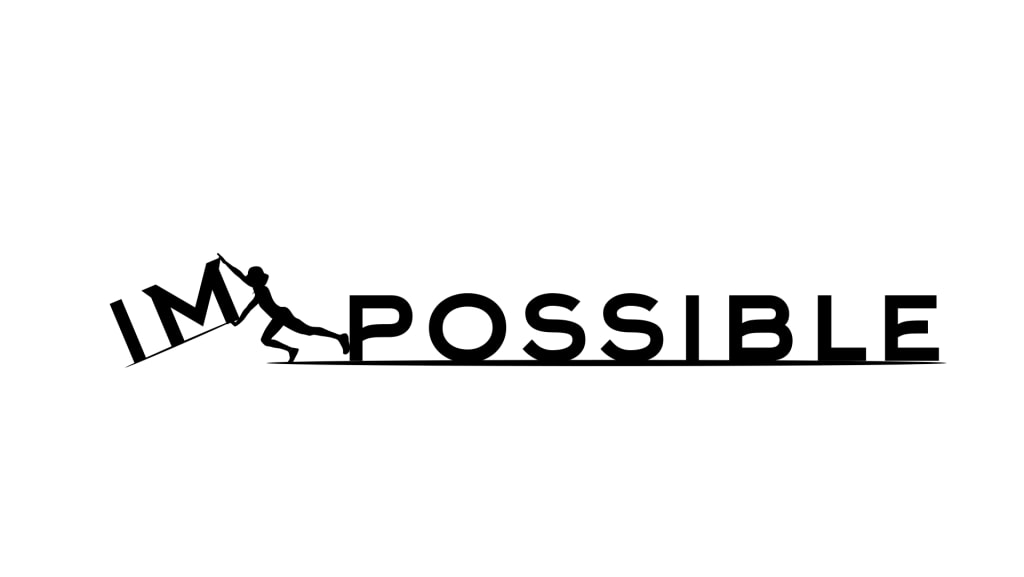5 Things I've Learned After Years of Living with Panic Disorder
Taking the power away from anxiety

I’ve been dealing with anxiety and panic attacks for years now...
But it wasn’t until recently I realized just how much of a negative impact it was truly having on my life.
I used to think that my panic was just who I was, something I had to deal with and accept as part of being human. But once I started to learn more about what causes unmanageable anxiety and how it affects our bodies, I realized how much work it would take for me to get back to living a healthy and happy life.
Since then, I’ve made it a point to learn everything I can about general anxiety and panic attacks so that I can properly treat my symptoms and move forward in life with confidence and peace of mind.
These five points are some of the most important things I’ve learned in my journey to recovery, and I hope they can help you on yours as well!
1) Anxiety disorders are common and treatable!
Anxiety disorders are certainly common, as nearly 30% of adults will experience some form of anxiety at some point in their lives. There are several strategies that can be employed to help sufferers recover completely.
Two of the most effective treatments involve talk therapy and medication. These treatments can be given alone or in combination.
Cognitive behavior therapy (CBT), which teaches a person different ways of thinking, reacting, and behaving so that they feel less anxious, is one of the most commonly employed methods of talk therapy.
While medications cannot cure anxiety disorders alone, they can help reduce symptoms in combination with talk therapies.
2) Anxiety/panic attacks DO NOT cause harm!
When I started having panic attacks, I had no idea what they were or why they were happening.
My first panic attack left me stone cold, shaking all over with a pounding heart and a sense of impending doom.
I thought that I was having a heart attack or had somehow been poisoned. I didn't know how to stop these sensations and it took a long time to understand that I wasn’t having a health crisis.
Shakiness, a racing heart, and heavy breathing are all totally normal symptoms associated with panic attacks, and even those are just the most common.
I’ve also felt like smoke was in my lungs, or that ice was running through my veins. I’ve even experienced heart palpitations, sweats, headaches, and dizziness.
Symptoms could change from episode to episode but the thing that always remained the same was that I had a 100% success rate of surviving every attack.
It took a long time to understand (and its still sinking in for me) that these feeling are incapable of causing damage. They are just symptoms of the anxiety itself.
When we fully realize that these intense physical sensations can’t harm us, then they can no longer control us.
3) G et a diagnosis...and accept it fully!
I’ve probably been to the emergency room over two dozen times in the last seven years, all in relation to panic attacks.
I’d rush in convinced that there was something medically wrong with me only to be told that I was totally fine, but it didn't matter. The next time those feelings arose I'd be right back in the hospital fearing for my life.
I just wasn't convinced that I was healthy. It felt like a gamble. Would the next time be a false alarm or would I be ignoring the symptoms of something more serious?
I didn't want to take the risk, so I used the ER and EKG's as my panic attack coping strategy...which was terrible, and ineffective.
Panic attacks can mimic other medical emergencies (like heart attacks) in their physical symptoms, but they're not actually dangerous. Even still, it can be hard to come to terms with that idea.
For me it took getting a full physical examine to be sure that I was healthy.
After having my heart, brain and blood examined, I had to accept the diagnosis: I...WAS...FINE.
I am healthy. I do have panic disorder. But that's all! The condition is common, and it is very treatable!
If we're told that there is nothing physically wrong with us after having a full examination, it's essential that we listen, accept, and move on. Anxiety does not know more than a medical professional, and does not deserve to waste more of our time.
4) Anxiety needs treatment
Whether it’s a week of rest in between episodes, a month, a year, or even several years, anxiety never truly disappears unless we address it head on.
Believe me I know; it’s been seven years and I'm only just starting to make consistent headway in my recovery journey.
While it’s certainly one of the most treatable disorders, so many anxiety sufferers deal with symptoms for way longer than they need to because they choose not to act.
It’s time we put our lives back into our own hands by talking with a doctor and/or therapist, taking actionable steps toward reducing stress, increasing mindfulness, and discovering the techniques that work best for us.
In due time our anxiety can be reduced and even disappear altogether!
5) Bravery is the key to curing our anxiety
When I heard this, I felt a little annoyed.
“Well obviously, if I were brave, I’d have no fear and wouldn’t be dealing with anxiety and panic attacks in the first place!”
But to be brave or courageous doesn’t mean to simply be without fear altogether. It means that we keep moving forward despite being afraid!
Too often we shove down our anxious feelings or try to immediately soothe them as they arise. We fear an attack, try to stop it, and end up escalating it further.
While it may seem counter intuitive at first, its better to run towards not away from our anxiety.
A technique that has personally helped me is mocking my anxiety as if it were an annoying, needy, and anxious character in my mind.
I might say to myself, “oh is that the best you’ve got? Try harder anxiety! you’ve got 30 seconds to make me feel the absolute worst that I can. Make my heart pound out of my chest, make me feel the dizziest, the shakiest I’ve ever felt… you’ve got 30 seconds, but after that I’m no longer going to waste my time on you.”
Then slowly count down from 30, taking time and really being generous to this anxiety character. Every time I’ve applied this technique the opposite effect takes place by the time I reach zero; my heart rate slows, my breathing normalizes, and other uneasy sensations begin to wane. Anxiety is all talk and no action.
Sometimes it may take a couple rounds of the exercise but if we call its bluff, anxiety will have no choice but to back down.
I know how hard it can be to deal with anxiety. It's a nightmare, and it can feel like it's going to last forever.
I've been there, and it's not fun. But fortunately, there are ways to manage anxiety so that it doesn't have to control our lives anymore.
I'm learning new techniques and ideas all the time, too. When I find something that works for me, rest assured that I will share it!
So I hope this article has helped you find some useful insights, or at least helped you feel a little less alone in your experience.
What helps you manage your anxiety?






Comments
There are no comments for this story
Be the first to respond and start the conversation.